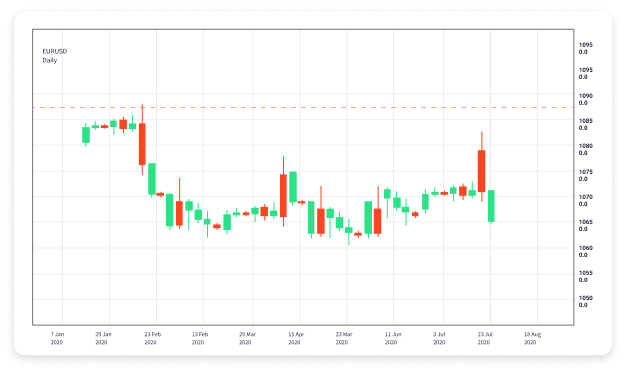
Understanding Forex Trading Regulations: A Comprehensive Overview
Forex trading is a dynamic and increasingly popular form of financial investment that attracts a global audience. With the growth of forex markets, the importance of regulations has become paramount. Regulatory frameworks are essential to protect traders, maintain market integrity, and ensure fairness in trading practices. Moreover, the emergence of forex trading regulations Forex Trading Apps has simplified access to the forex market but also raised new regulatory challenges. In this article, we will delve into the various aspects of forex trading regulations, explore their significance, and examine how they shape the trading environment.
The Need for Regulation in Forex Trading
Forex trading can be lucrative; however, it is also fraught with risks. The nature of the forex market, characterized by high leverage and volatility, can lead to unexpected financial losses. Regulatory bodies are established to protect traders from fraud, ensure the ethical conduct of brokers, and promote transparency in trading practices.
Without proper regulations, the potential for abuse and malpractice increases, resulting in a detrimental experience for traders. Regulations serve as a safety net, ensuring that brokers adhere to specific standards and that they treat clients fairly. This is particularly crucial for retail traders who may lack the knowledge and resources to navigate the complexities of the forex market.
Key Regulatory Bodies around the World
Various regulatory bodies are responsible for overseeing forex trading within their jurisdictions. Here are some of the most prominent ones:

- Commodity Futures Trading Commission (CFTC) – United States: The CFTC is responsible for regulating the commodity and futures markets, including forex trading. It ensures that forex brokers are registered and comply with strict financial requirements.
- Financial Conduct Authority (FCA) – United Kingdom: The FCA is regarded as one of the most influential regulators globally. It emphasizes consumer protection and promotes competition, ensuring that firms operate ethically and transparently.
- Australian Securities and Investments Commission (ASIC) – Australia: ASIC regulates forex brokers in Australia and mandates compliance with strict financial standards to protect investors.
- European Securities and Markets Authority (ESMA) – European Union: The ESMA implements regulations applicable across EU member states, focusing on enhancing investor protection and maintaining market integrity.
- Monetary Authority of Singapore (MAS) – Singapore: MAS oversees financial institutions in Singapore, ensuring that forex brokers adhere to stringent regulations.
Common Regulatory Requirements for Forex Brokers
Forex brokers must comply with various regulations to ensure their legitimacy and reliability. Here are some common regulatory requirements imposed by regulatory bodies:
- Licensing: Brokers must obtain a license from the relevant regulatory authority in their jurisdiction. This often involves meeting specific financial criteria and operational standards.
- Segregated Accounts: Regulatory requirements stipulate that brokers maintain clients’ funds in segregated accounts. This ensures that client funds are kept separate from the broker’s operational funds, enhancing security in case of financial difficulties.
- Client Protection: Regulations often mandate brokers to implement measures that protect clients, such as negative balance protection and providing clear information regarding risks associated with trading.
- Reporting Obligations: Brokers are frequently required to report their financial activities, including trading volumes and client transactions, to regulatory authorities to ensure transparency.
- Compliance with Leverage Limits: Many regulatory bodies set limits on the maximum leverage brokers can offer to their clients in order to protect traders from excessive risk.
The Impact of Regulations on Traders
Forex regulations significantly influence the trading environment and the experience of traders. The primary benefits of operating under a regulated framework include:
- Enhanced Security: Regulations help ensure that only reputable brokers operate in the market, reducing the risk of fraud and malpractice.
- Consumer Trust: Traders are more likely to trust brokers that are regulated by reputable authorities, leading to a more stable trading environment.
- Access to Resources: Regulated brokers often provide their clients with better educational resources, tools, and support to enhance their trading skills and knowledge.
- Fair Trading Practices: Regulations ensure that brokers adhere to fair practices in executing trades and managing accounts, which can improve the overall trading experience for clients.

Challenges Posed by Regulations
While regulations offer various benefits, they also present challenges for both brokers and traders. Some of these challenges include:
- Increased Costs: Compliance with regulatory requirements often entails higher operational costs for brokers, which can lead to increased trading fees for clients.
- Restrictive Practices: Some regulatory measures, such as leverage limits, may restrict trading opportunities and affect the profitability of trades.
- Complexity: The constantly evolving regulatory landscape can be complex for traders to navigate, requiring them to continuously stay informed about changes that may impact their trading.
How to Choose a Regulated Forex Broker
When selecting a forex broker, it is crucial to ensure that they are properly regulated. Here are some tips for choosing a regulated broker:
- Check Regulatory Status: Verify that the broker holds a valid license from a reputable regulatory authority.
- Read Reviews: Look for reviews and feedback from other traders to gauge the broker’s reputation and reliability.
- Review Trading Conditions: Analyze the broker’s trading conditions, including spreads, fees, leverage, and available trading platforms.
- Customer Support: Ensure that the broker provides responsive customer support to assist with any issues that may arise during trading.
Conclusion
Forex trading regulations play a vital role in shaping the trading environment and protecting traders from potential risks. Understanding these regulations is essential for both novice and experienced traders, enabling them to make informed choices when selecting brokers and navigating the forex market. By prioritizing compliance and security, traders can trade with confidence and focus on achieving their financial goals. As the forex landscape continues to evolve, staying informed about regulatory changes is crucial for all market participants.
